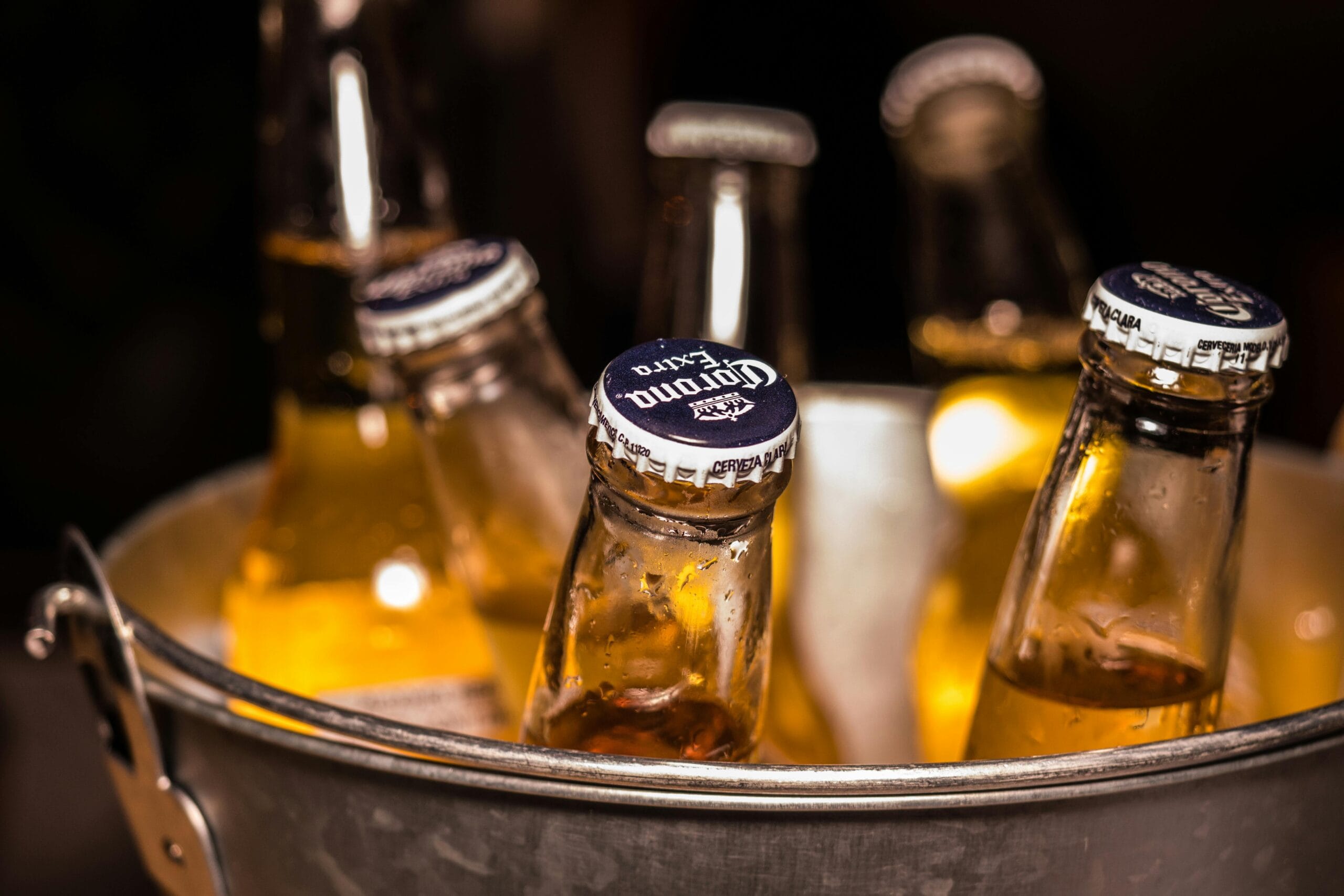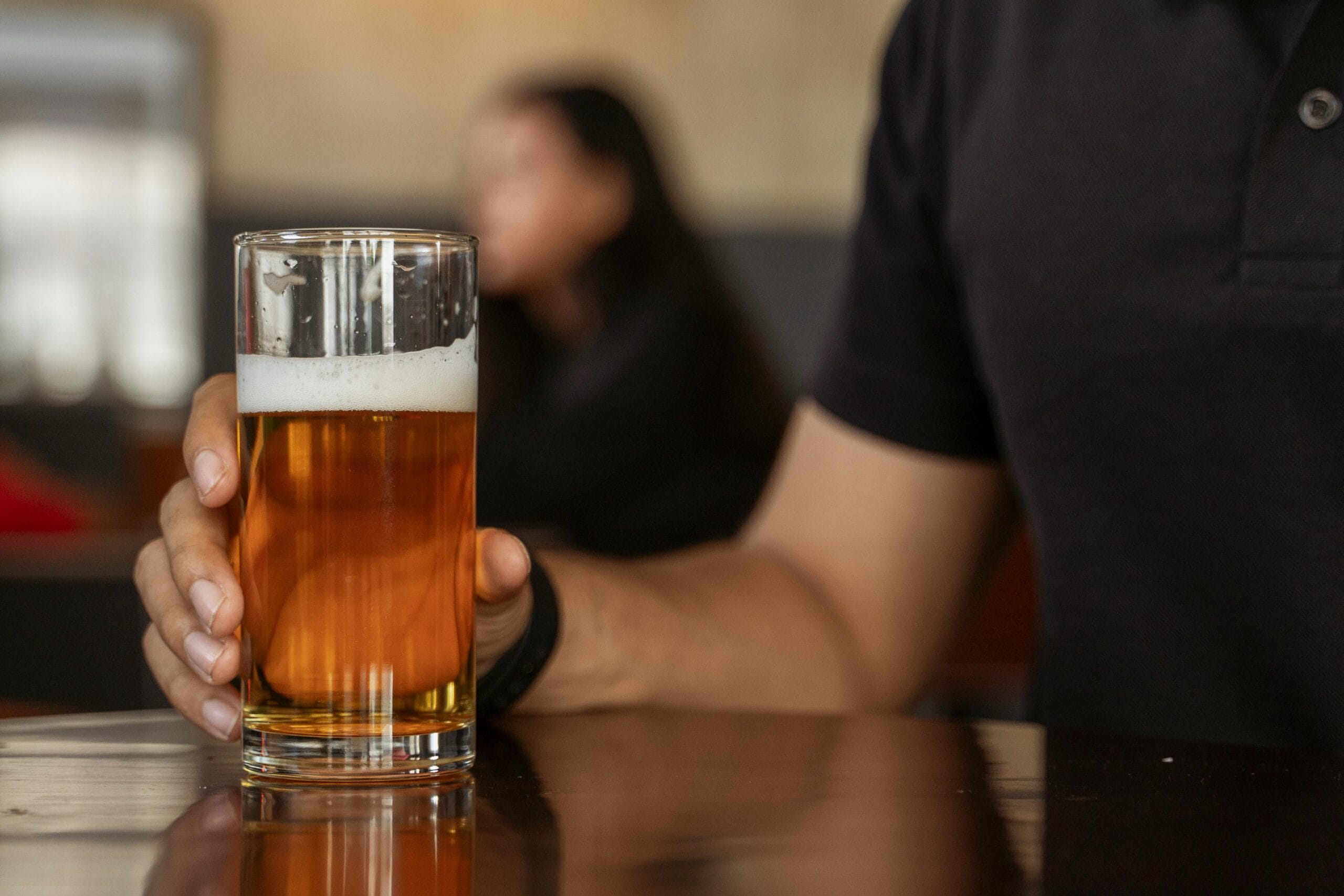Signs of a Drinking Problem and How to Help Someone Break Free

With cultures celebrating indulgence, peer pressure to experience the forbidden and dangerous, and high levels of stress requiring coping, it’s no surprise that many people reach for alcohol. Alcohol-related issues are among the most significant public health issues in the United States. To prevent the development of addiction and medical and psychological problems related to it, you should learn the signs of a drinking problem and react before it turns into something more serious, like alcohol use disorder (AUD). You can always contact professionals for support, and Tranquility Luxury Rehab Los Angeles is here to help you.
We would like to share with you answers to “What are the signs of a drinking problem?” so you can spot them on time in yourself and others. Furthermore, we want to provide input on how to help someone with a drinking problem and who to turn to for support. Keep reading for more details on signs of drinking problems and ways to react to them.

What Are the Signs of a Drinking Problem?
A simple definition of a drinking problem says it’s a situation in which someone regularly drinks too much alcohol and finds it hard to stop. This can easily be said about alcohol use disorder (AUD) as well, so you might be wondering what’s the difference. While both conditions imply unhealthy relationships with alcohol, those with drinking problems aren’t necessarily addicted to alcohol. However, drinking problems can turn into AUD, making it important to learn to spot warning signs of a drinking problem.
Those signs of a drinking problem include several behavioral changes:
- You might be drinking more than intended or losing control with alcohol. By drinking more, we refer to both drinking more frequently or binge drinking, meaning drinking a lot on a single occasion. Furthermore, losing control means you’re losing track of how many drinks you had, easily ending up intoxicated.
- As your alcohol intake grows, you will develop a tolerance to alcohol. This means that you would start drinking higher and higher amounts of alcohol or start drinking even more frequently to experience the same effect of alcohol as before.
- Due to increased alcohol use, you might be neglecting your responsibilities. You may forget a certain social commitment, be late with delivering results at work, or ignore home tasks.
- A warning sign you might miss, but others will surely notice, is a relationship or work problem. Due to neglecting private or professional obligations, you will experience relationship issues with other people.
- Experiencing withdrawal symptoms when trying to stop is a clear sign that you have developed some level of alcohol dependence. Some withdrawal symptoms can resemble symptoms of the flu, and many people with drinking problems try to neglect withdrawal symptoms when they occur.

Warning Signs of a Drinking Problem in Others
Someone struggling with drinking will showcase warning signs of a drinking problem, and they might be emotional, cognitive, and behavioral.
- Emotional signs of drinking problems. Typically, someone struggling with alcohol use will experience emotional instability manifested by mood swings. Additionally, they can have anger outbursts, especially after drinking. An important characteristic is that the reaction is either disproportionate to the trigger or lacks a real reason.
- Cognitive signs of drinking problems. If someone has drinking problems, they will likely become defensive and secretive about drinking. They might feel shame or be worried about others intervening. Hiding drinking habits is an attempt to minimize drinking issues.
- Behavioral signs of drinking problems. The most obvious behavioral sign is the intensity of drinking. People with alcohol problems will frequently drink alone, often hiding from others. Additionally, their interpersonal relations might change. They can start neglecting relationships or social commitments.
While all this can be frustrating and make you worry about your loved one, it’s important to be empathetic and nonjudgmental. They will need your support and acceptance.
How to Help Someone with a Drinking Problem
Keeping in mind that your loved one needs support rather than judgment, there are several things you can do for them.
- Approach openly and with compassion. Be ready to listen and offer a safe space for them to open up about their problems. Ask questions and show empathy and understanding for their struggles.
- Share your concerns. Use specific examples of their behavior to illustrate what makes you worried about them. Don’t critique or fight about the examples you provided. Instead, focus on why they should seek support.
- Encourage them to seek help. As their loved one, you can offer your love and support, but drinking problems typically require professional assistance to overcome them. Encourage them to seek specific programs and adequate treatments.
Additionally, you can suggest programs and facilities that can help them, like dual diagnosis rehab Los Angeles medical professionals recommend. Programs like this can help them work on alcohol-related issues and simultaneously address mental health struggles that often trigger drinking problems.

When to Seek Professional Help
Once you spot signs of a drinking problem in others, encourage and empower them to seek professional help. You can suggest visiting alcohol addiction treatment Los Angeles facilities, keeping in mind their needs and the severity of the drinking problem. For instance, some people find it difficult to structure their own time and require additional support to overcome their drinking problems. In those cases, inpatient rehabs are suggested as they have many benefits for people struggling to quit alcohol misuse. In other cases, a less structured outpatient program can be sufficient to overcome alcohol-related issues.
Finding the right approach is important to achieve sustainable results, which is why Tranquility Recovery Center evaluates clients’ conditions and tailors specific programs based on their needs, circumstances, and preferences.
Professional Support for Drinking Problem
Opting for professional treatment in Los Angeles offers the following benefits:
- Medical detox for safe withdrawal. Once a person quits drinking, withdrawal symptoms appear. Typically, they are not dangerous, but they can be highly uncomfortable and put you in a risky situation. Many people who try to detox alone at home find it difficult to manage withdrawal symptoms and, unfortunately, relapse. Furthermore, it is often difficult to control alcohol use in such situations, resulting in alcohol poisoning. The risk of experiencing overwhelming symptoms and leaning back to alcohol use practically disappears when one chooses alcohol detox in Los Angeles provided by professional facilities such as Tranquility Recovery Center.
- Counseling and therapies for underlying issues. Cleaning the body from alcohol alone is not sufficient to overcome drinking problems. One should understand why they leaned into alcohol use in the first place. This is achieved with counseling and evidence-based psychotherapy (like cognitive behavioral therapy). A therapist can guide you through understanding your emotions and thinking patterns that could have led you into drinking problems. Furthermore, they can help you reframe your thoughts and beliefs to produce adaptive behavior and successfully manage alcohol intake.
- Integrated care for co-occurring mental health conditions. For some people, drinking problems and mental health problems are intertwined. When you choose to get rid of the problem of drinking with the help of a professional facility, you can also count on them to support you in overcoming your mental health struggles. Integrated care provided by Tranquility Recovery Center ensures both alcohol-related problems and co-occurring mental health conditions are treated with equal care and simultaneously. This is achieved with our dual diagnosis treatment.
While these are the most important treatment-related benefits, remember that you can also count on additional benefits such as comfort, luxurious amenities, continuous care and support from experienced staff, and the diverse and accepting environment of Los Angeles.
Steps to Take If You Suspect a Drinking Problem
If you suspect someone close to you is struggling with alcohol use but you are not sure what to do, here are a few simple steps you can take:
- Educate yourself on the signs of a drinking problem and try determining whether your loved one is showing them.
- Research available treatment options, such as dual diagnosis or rehab programs.
- Gather all relevant information about available facilities, including does insurance cover rehab in those you are interested in.
- Offer your emotional support to start recovery, as well as throughout the process.
Remember, you are not alone in this. You can count on Tranquility Recovery Center to support you in helping your loved ones.

Seek Help for Your Drinking Problem
Early recognition of signs of a drinking problem and their acceptance are the first steps in ensuring help for someone in need. Whether you are struggling with drinking or you know someone else who does, timely reaching out to professionals for help and support can prevent more severe issues and set a solid base for well-being and success.
Contact Tranquility Recovery Center to learn about ways we can support anyone struggling with drinking. Professional resources like dual diagnosis and addiction treatment programs we provide can change lives for the better.
You Have Questions
We Have Answers
At Tranquility Recovery Center, we offer treatment for a wide range of addictions, including alcohol, opioids, prescription drugs, and illicit substances. Our team tailors each program to meet individual needs, focusing on both the physical and emotional aspects of recovery.
At Tranquility Recovery Center, we offer treatment for a wide range of addictions, including alcohol, opioids, prescription drugs, and illicit substances. Our team tailors each program to meet individual needs, focusing on both the physical and emotional aspects of recovery.
At Tranquility Recovery Center, we offer treatment for a wide range of addictions, including alcohol, opioids, prescription drugs, and illicit substances. Our team tailors each program to meet individual needs, focusing on both the physical and emotional aspects of recovery.